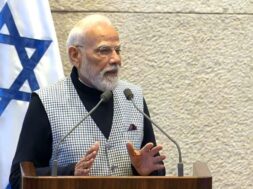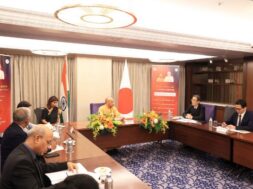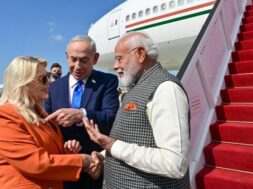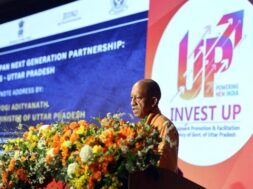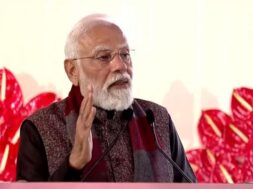
Bigger Challenges Facing Indian Security Agencies as China-Pakistan Sign another Military Accord and Beijing Coming Closer to Nepal
Manas Dasgupta
NEW DELHI, Dec 1: As India getting increasingly worried over Pakistan using China-made drones to smuggle weapons and even bomb targets close to the international border, China signed yet another new memorandum of understanding with Pakistan on Monday to further boost their already close military relations.
The Pakistan media reported on Tuesday that the accord was signed after China’s Defence Minister and People’s Liberation Army (PLA) General Wei Fenghe visited the headquarters of the Pakistani army at Rawalpindi. Gen. Wei called on Pakistan’s Chief of the Army Staff General Qamar Javed Bajwa at the General Headquarters, and both discussed “matters of mutual interest, regional security and enhanced bilateral defence collaboration.” The reports said.
Gen Wei’s visit to Pakistan followed his day-long visit to Nepal earlier where China is trying to cultivate another all-weather friend to use against India. In his meetings with President Bidya Devi Bhandari and Prime Minister K.P. Sharma Oli, both China and Nepal discussed “economic cooperation amid the framework of the China-proposed Belt and Road Initiative and military exchanges,” Nepalese media reported. Gen Wei reportedly told Nepalese leaders that China “firmly supports Nepal to safeguard its national independence, sovereignty and territorial integrity, and will continue assisting Nepal’s military development, contributing to regional peace and stability.”
The reports pointed out that military-to-military relations between China and Nepal were growing, with the PLA Air Force earlier this year sending protective outfits, medical masks and thermometers to the Nepalese military.
The newspaper noted that military-to-military relations between the two countries were growing, with the PLA Air Force earlier this year sending protective outfits, medical masks and thermometers to the Nepalese military.
In Pakistan, the Chinese general discussed with the Pakistani officials the on-going projects under the China Pakistan Economic Corridor (CPEC), in which the Pakistani military is playing an increasingly prominent role.
Prior to Gen. Wei’s visit, the Chinese ambassador in Pakistan Nong Rong had conducted a “comprehensive review” of the CPEC projects along with former Pakistan Army Lt. Gen. Asim Saleem Bajwa, who is heading the CPEC Authority.
The Pakistani media said the Chinese Defence Minister also had talks with Pakistan’s Chairman of the Joint Chiefs of Staff Committee General Nadeem Raza where both sides “reaffirmed their commitment to ‘iron brotherhood’ and ‘all-weather’ Friendship.”
Gen. Bajwa, the Chief of Army Staff, was quoted as saying that both countries “had been standing together all along, and our relations will be no different in wake of future challenges.”
The MoU signed between the two countries on Monday followed the agreement signed last year when China’s Vice-Chairman of the Central Military Commission (CMC) General Xu Qiliang visited Rawalpindi for defence cooperation and “capacity building of the Pakistan Army.”
Indian intelligence sources said even as India started deploying anti-drone equipment along its borders with Pakistan, the Pakistan-backed terror groups aided by its Inter Services Intelligence (ISI) have started using bigger Chinese-make drones to smuggle arms and ammunitions across the border to help the home-grown terrorists in Kashmir and try instigate another Khalistan-type movement in Punjab. The sources have also cautioned the security services that attempts through drones to bomb targets close to the borders could also not be ruled out.
Counter-terror officials in Delhi said the terrorist groups and the ISI, which had been using drones for arms trafficking at a small scale over the past few years, had procured upgraded versions of the drones that can carry much larger quantities of firearms in every sortie.
In Punjab alone, sources said, there have been four Chinese drone recoveries by Punjab Police along with weapons since August, 2019 apart from other aerial movements.
The sources said while India was pushing hard to build its anti-drone capacities, the coming winter months would be hard test for the Indian security agencies when more drones were expected to fly into India to take advantage of the fog. The Border Security Force director general Rakesh Asthana at the BSF rising day event on Tuesday said the BSF was working to find technical solutions to counter drone infiltrations on the western border.
Punjab Police, on its part, has asked the Centre as well as the Indian Air Force (IAF) to deploy low-level radars along the border to detect the drones and destroy them. Even the BSF, which man the international borders, is now rushing to procure anti-drone systems as apart from weapons, drugs are also being dropped to raise terror funds in Punjab and Jammu and Kashmir, the sources said.


